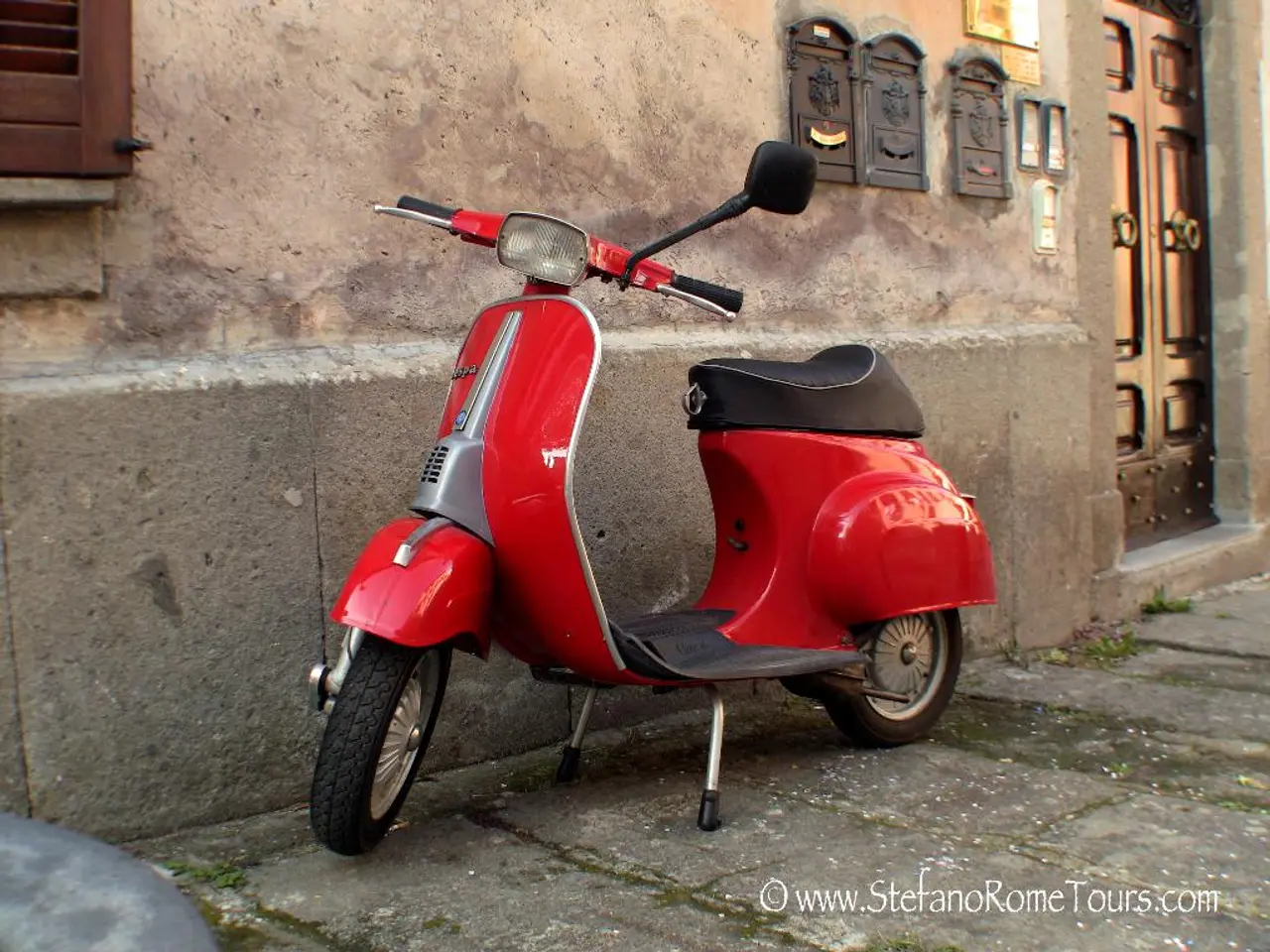Scant reports of issues concerning e-scooters surface
Neuss, a city in North Rhine-Westphalia, Germany, has seen an increase in e-scooter and bike rentals in recent years. Here's a look at the current regulations, challenges, and updates surrounding these micro-mobility services in the city.
Regulations
In Neuss, as in much of Germany, there are specific rules governing the use of e-scooters and rental bikes. Users must be at least 14 years old and are recommended to wear helmets. E-scooters are permitted on bike lanes and roads with speed limits up to 50 km/h, but are banned on sidewalks. The maximum speed for rented e-scooters is typically limited to 20 km/h. Parking regulations are in place to prevent blocking sidewalks, entrances, or streets, and improper parking can lead to fines. Rental companies generally require users to register via an app and abide by traffic laws as for bicycles.
Challenges in Neuss
Despite the increasing popularity of e-scooters and bikes, Neuss faces several challenges in integrating these services smoothly into its urban traffic and public spaces. Operational issues such as app reliability can affect user experience, leading to ride disruptions or payment problems. Ensuring user compliance with parking and traffic rules is an ongoing challenge, as misparked scooters can clutter public spaces. Technical service quality and customer support remain points of user complaint, impacting the perception and practical usability of e-scooter sharing.
Municipalities like Neuss must balance embracing micro-mobility for green transport goals while managing public safety, sidewalk congestion, and conflicts with pedestrians.
Updates and Changes
Several e-scooter and bike rental companies operate in Neuss, including SPIN, LIME, BOLT, and GO. However, SPIN is discontinuing its services nationwide by January 31, 2022. GO has withdrawn its mopeds from Neuss and will focus solely on Saarbrücken in the future.
The special use permits for these companies in Neuss are valid until October 2023 for BOLT and May 2022 for LIME. The renewal of these permits depends on the providers' handling of complaints and their swift resolution. The city administration is in constant exchange with remaining providers to keep the number of complaint reasons as low as possible.
In 2021, around 7,500 trips for e-scooters and bikes started or ended in the Düsseldorf city area, with up to 600 e-scooters and rental bicycles operated by companies in Neuss. The number of e-scooter rentals was approximately 100,000, while the number of bike rentals was nearly 15,000.
The number of complaints about improperly parked scooters decreased during the fall months but has been increasing again in recent weeks. Unlike in Cologne, there were no reported incidents of rental devices being thrown into the Rhine or its harbor basins in Neuss. As of currently, the city has only received an inquiry from another provider for a usage permit.
The responsible deputy mayor, Christoph Höltgens, stated that the market regulates itself. The special use permit for e-scooter and bike rentals in Neuss limits the number of devices offered by each provider to a maximum of 200 and designates specific areas for offering and parking.
In conclusion, the current regulations and challenges for e-scooter rentals in Neuss reflect broader rules applicable in Germany combined with local enforcement nuances. The key challenges involve integrating e-scooters smoothly into existing urban traffic and public space without causing disruption. User feedback highlights technical and service reliability issues with rental operators that could affect widespread adoption and regulatory trust.
- The city of Neuss, amidst its flourishing finance and technology sector, has been actively advancing its lifestyle industry by implementing e-scooter and bike rentals, contributing to the transportation sector's modernization.
- Despite the positive impact of these micro-mobility services onNeuss's sustainable transportation efforts, challenges such as app reliability, compliant parking, and technical service quality persist, impacting public spaces and user experience.
- With the discontinuation of SPIN's services and GO's shift in focus, the landscape of Neuss's micro-mobility industry is undergoing changes, as re-evaluations of special use permits for companies like BOLT and LIME are anticipated in the near future.




